Challenges for refugee mothers at Ugandan settlement
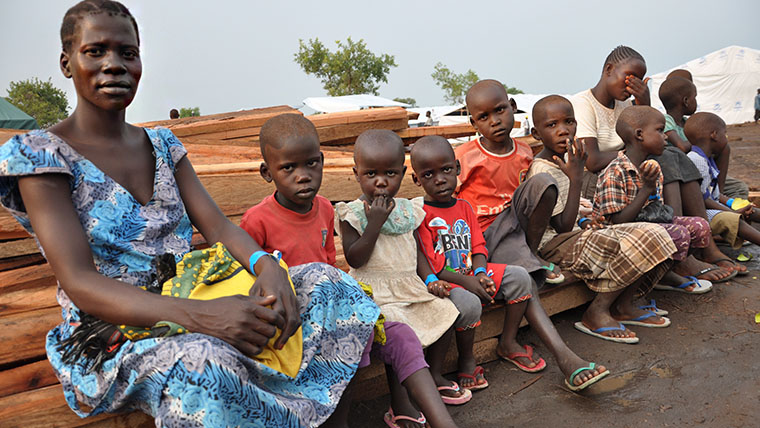
By Moses Mukitale, Communicator, World Vision Uganda
25-year-old Kiden is a mother of six and currently expecting her seventh child. Until last month, she and her family lived in South Sudan, but in early July, they fled to Uganda to seek refuge. The recent wave of conflict in Juba had left their house burnt to ashes, but life here hasn’t been any easier.
Kiden and her six children were recently transferred to Bidi Bidi camp in northern Uganda. I met them a week after they arrived; they were still living out in the open. The family had not been able to build a make-shift house at the newly opened refugee settlement in Yumbe district.
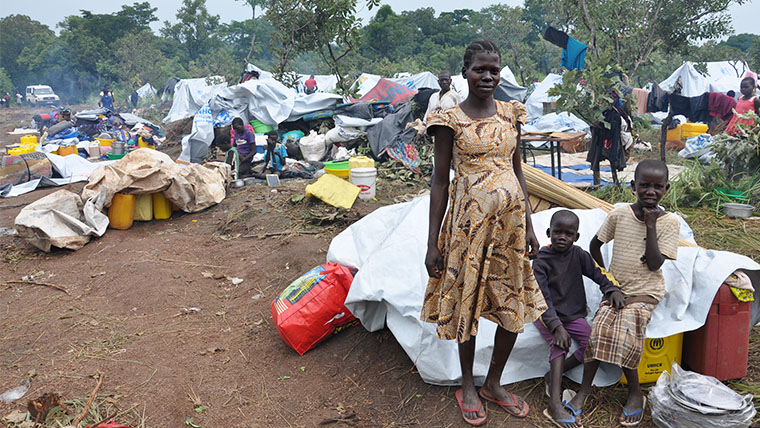
Kiden tells us, “My husband is still weak and hasn’t been able to put up a structure for us. When it rains, everything gets wet. We have nowhere to seek shelter. We sometimes use the tarpaulin and blankets to cover ourselves. I am pregnant and I don’t know how I am going to go through this. It is very hard and scary sleeping out here in the open at night.’’
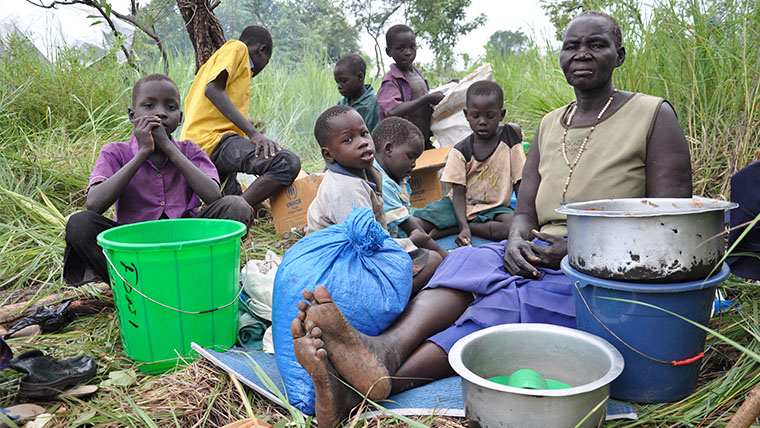
Kiden is just one of thousands of refugees without shelter in the new Bididbidi refugee settlement camp, where more than 15,000 South Sudanese refugees have been transferred from settlements in Adjumani and Moyo districts.
When they first arrive in Uganda, the refugees receive accommodation and meals, and once processed, each family is shifted to a refugee settlement, given a plot of land and provided with basic items to start a new life.
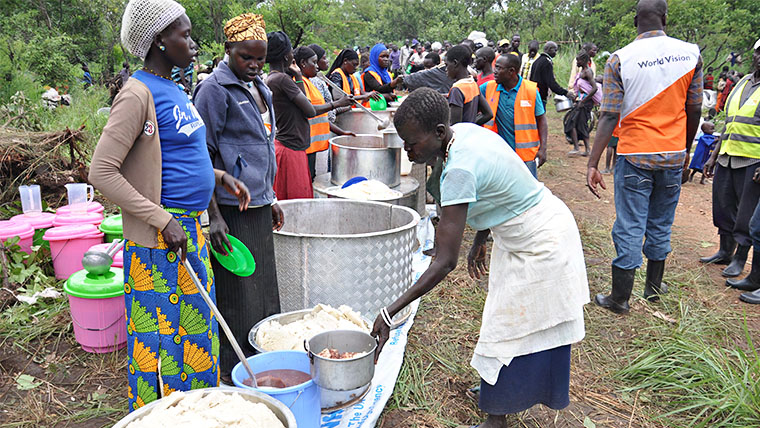
They receive tarpaulins, building poles and nails among the items from UNHCR. However, this is when their next challenge dawns - they now have to construct some kind of makeshift dwelling, or stay sleeping out under the stars and the rain.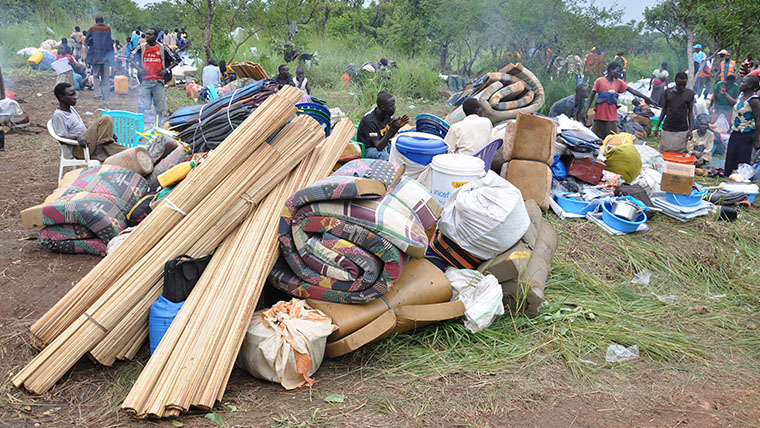
Within the camp, 60% of the refugees are women and children, who often struggle to raise their own temporary structures. These families rely on the mercy of other refugees in order to build their temporary homes.
“Everyone is busy putting up a shelter for their family. Some young men come and help out the elderly and the sick, but that only happens after a while. At night we all cover ourselves with the UN blankets and then put the tarpaulin on top to keep water from coming through,’’ Kiden told me bleakly.
This situation has been aggravated by the current rainy season. Poor sanitation as a result of inadequate latrines leave the elderly and the young prone to contracting water-bone diseases. Kiden tells us that despite the harsh living conditions, she would still rather be here than go back to South Sudan.
"Some of my neighbours’ children were abused by the fighters, and we saw these things happen. I cannot go back, at least not now,’’ Kiden adds solemnly.
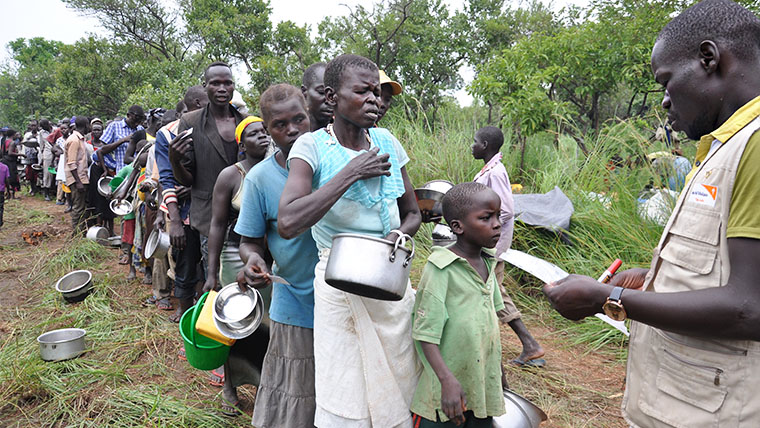
In the month since 7th July 2016, when fighting resumed, Uganda continues to receive more than 900 South Sudanese refugees daily at its Elegu border and intends to host close to 100,000 refugees at the new Bidibidi camp in Yumbe by the end of the year.
World Vision is working to provide hot meals to all new arrivals at Bidibidi camp and is distributing food and much needed supplies to the families. We are also rolling out an intergrated protection programme to keep children and unaccompanied minors safe in the settlement.
You can find out more about our South Sudan Crisis Appeal and how you can help»